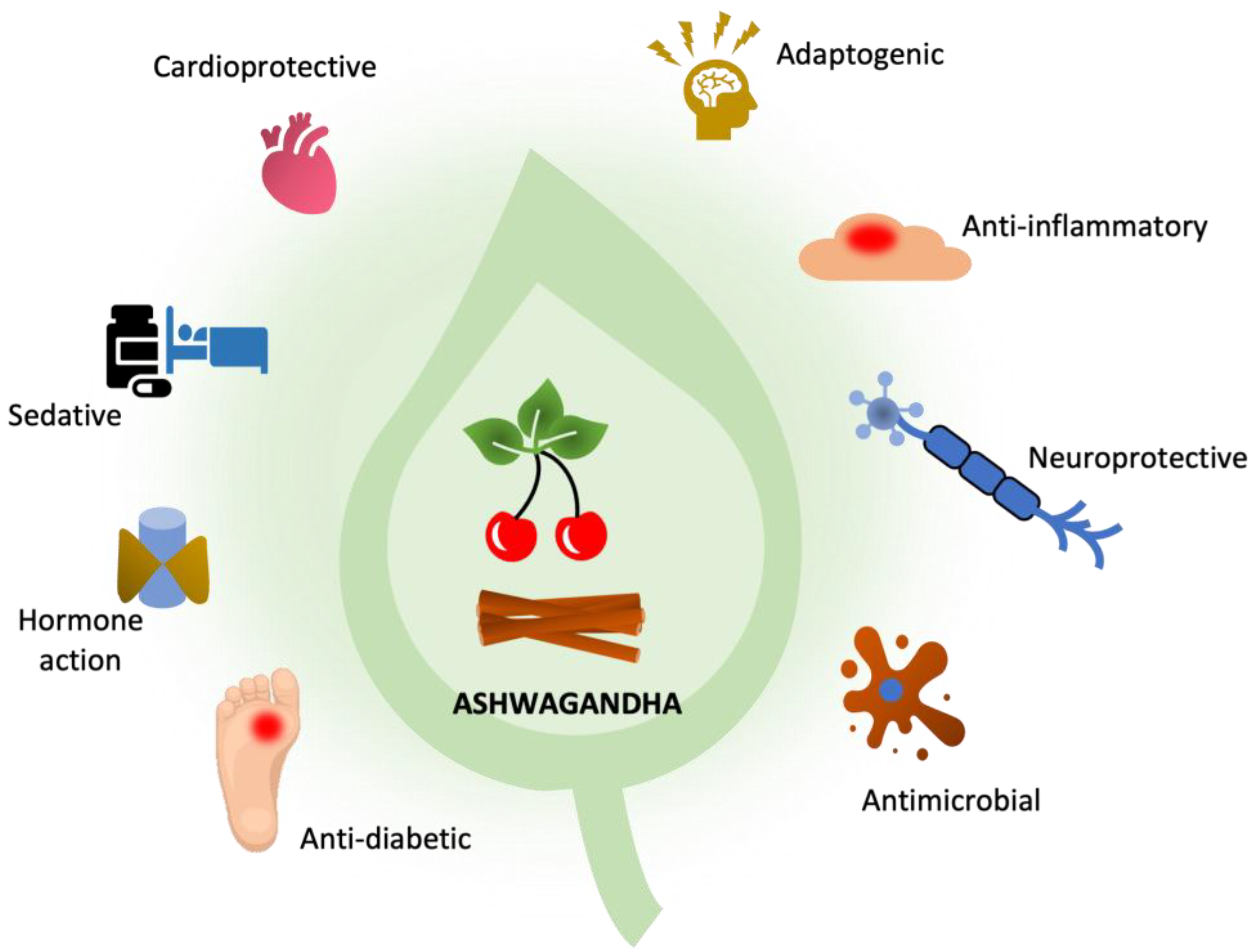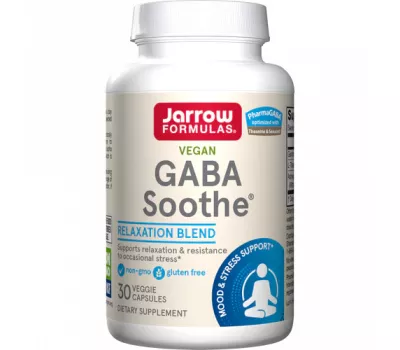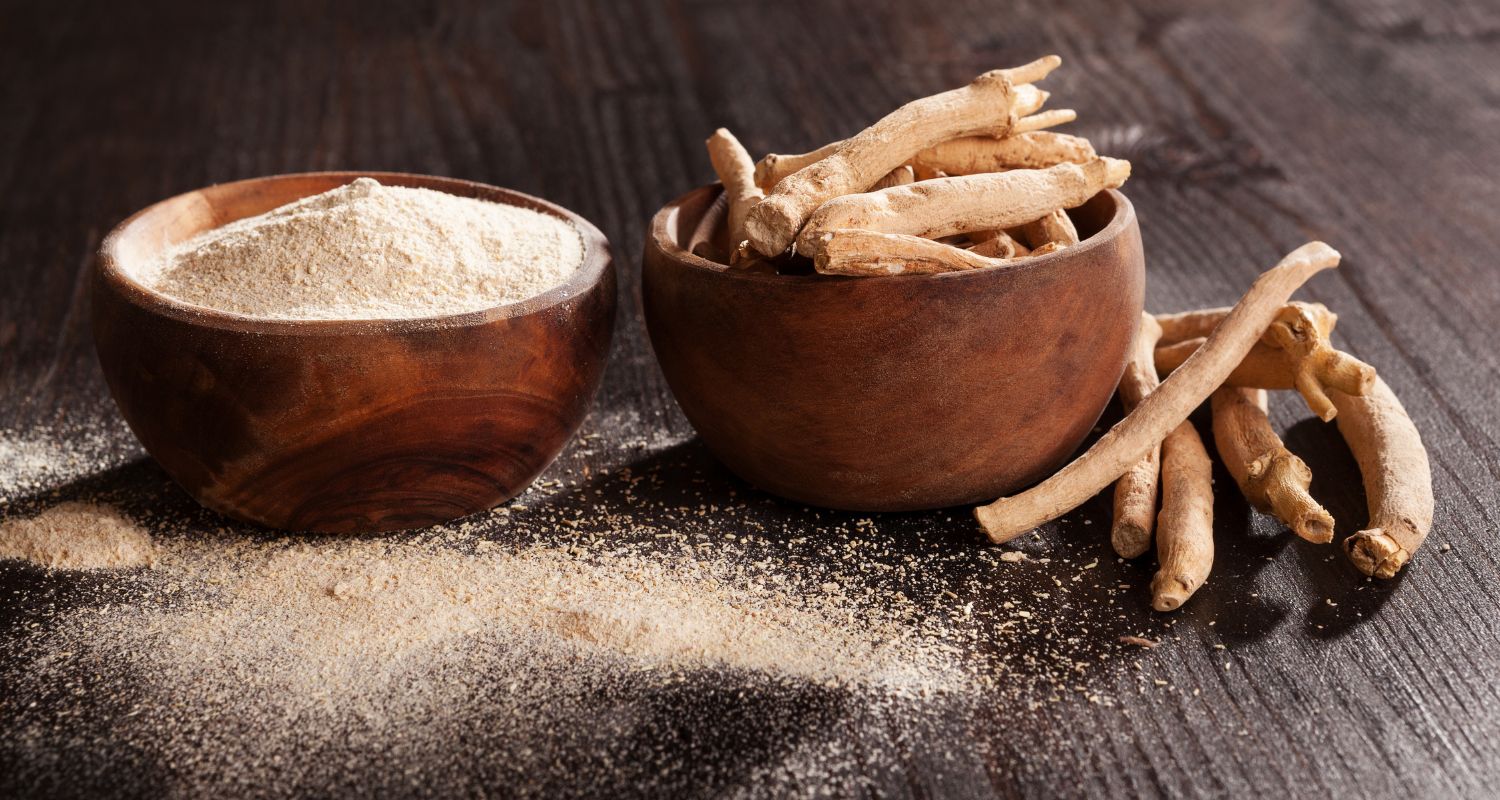Have you ever wondered about the benefits of combining GABA and Ashwagandha? Many people are curious about whether or not these two supplements can be taken together for even greater results.
In this article, we will delve into the topic and discuss the potential advantages of combining GABA and Ashwagandha, as well as how they can complement each other in promoting overall wellbeing.
GABA, also known as Gamma-Aminobutyric Acid, is a naturally occurring neurotransmitter in the brain. It is responsible for regulating anxiety levels and promoting a sense of calm and relaxation. On the other hand, Ashwagandha is an adaptogenic herb that has been used for centuries in traditional Ayurvedic medicine. It is known to help the body adapt to stress and promote a healthy response to various stressors.
When taken together, GABA and Ashwagandha can potentially enhance the effects that each supplement has on the body. GABA can help to soothe an overactive mind and promote relaxation, while Ashwagandha can support the body’s response to stress and help maintain a balanced mood.
By combining these two supplements, you may experience a synergistic effect that can further support your overall mental and emotional wellbeing. In the following sections, we will explore the individual benefits of GABA and Ashwagandha in more detail, so stay tuned to learn more about how they can work together to improve your overall health.

What is GABA?
GABA: An Overview
GABA, or gamma-aminobutyric acid, is a neurotransmitter that plays a crucial role in the central nervous system. It acts by inhibiting the activity of neurons, which helps to calm the brain and promote relaxation. GABA is considered an inhibitory neurotransmitter because it reduces the excitability of neurons, preventing them from firing excessively.
Functions of GABA in the Body
GABA has a wide range of functions in the body. It is involved in regulating muscle tone, promoting sleep, and reducing anxiety levels. Furthermore, GABA is known to have a neuroprotective effect, which means it can help protect the brain from damage caused by oxidative stress and inflammation. Research has also shown that GABA can improve mood and reduce symptoms of depression.
What is Ashwagandha?
Ashwagandha: An Introduction
Ashwagandha, also known as Withania somnifera, is an ancient herb commonly used in Ayurvedic medicine. It is known for its adaptogenic properties, meaning it helps the body adapt to stress and promotes overall well-being. Ashwagandha is classified as an adaptogen due to its ability to normalize physiological functions and improve the body’s resistance to stress.
Health Benefits of Ashwagandha
Ashwagandha has been extensively studied for its potential health benefits. It has demonstrated anti-inflammatory, antioxidant, and immunomodulatory properties. Additionally, ashwagandha has been found to reduce cortisol levels, the hormone responsible for the body’s stress response. This makes it an effective natural remedy for anxiety and stress-related disorders.
Some studies have also suggested that ashwagandha may have potential benefits for improving cognitive function, boosting testosterone levels, and enhancing athletic performance.

Comparison between GABA and Ashwagandha
Mechanisms of Action
Both GABA and ashwagandha work through different mechanisms to promote relaxation and reduce anxiety.
GABA acts by binding to specific receptors in the brain, known as GABA receptors. When GABA binds to these receptors, it increases the flow of chloride ions into neurons, which helps to inhibit their activity. This results in a calming effect on the brain and helps to reduce anxiety and stress.
Ashwagandha, on the other hand, exerts its effects by modulating the activity of various neurotransmitters, including GABA. It has been found to increase GABA levels in the brain, which contributes to its anxiolytic properties. Ashwagandha also interacts with other neurotransmitters and hormones, such as serotonin and cortisol, to promote a state of relaxation and balance.
Effects on Anxiety and Stress
Both GABA and ashwagandha have been shown to effectively reduce anxiety and stress levels. GABA’s ability to inhibit neuronal activity and promote relaxation makes it an effective natural remedy for anxiety disorders. Research has shown that GABA supplementation can reduce symptoms of anxiety, improve sleep quality, and enhance overall mood.
Similarly, ashwagandha has been found to have anti-anxiety effects. It works by reducing cortisol levels and modulating neurotransmitters involved in anxiety regulation. Studies have shown that ashwagandha supplementation can significantly reduce anxiety symptoms and improve stress resilience.
Potential Side Effects
When it comes to potential side effects, GABA and ashwagandha differ.
GABA is generally considered safe and well-tolerated when taken at recommended dosages. However, some individuals may experience mild side effects such as drowsiness, dizziness, or gastrointestinal discomfort. It is important to note that GABA supplements may not be suitable for everyone, especially those with certain medical conditions or taking specific medications. Consulting with a healthcare professional is advised before starting any new supplement regimen.
Ashwagandha is also well-tolerated by most individuals, but it may cause mild side effects such as upset stomach, diarrhea, or nausea. In some rare cases, high doses of ashwagandha can cause sedation or thyroid hormone imbalance. As with GABA, it is recommended to consult with a healthcare professional before starting ashwagandha supplementation.
Can GABA and Ashwagandha be Taken Together?
The Synergistic Effects
GABA and ashwagandha can be taken together to enhance their individual effects on anxiety and stress. The combination of these two natural remedies may work synergistically to provide a more potent relaxation and calming effect. As GABA and ashwagandha target different neurotransmitters and receptors, their combined use may have a greater impact on reducing anxiety and promoting a sense of well-being.
Possible Interactions
While GABA and ashwagandha can be safely taken together, it is important to consider possible interactions with other medications or supplements. Although rare, there may be potential interactions with drugs that affect GABA receptors or neurotransmitter activity. It is advisable to consult with a healthcare professional before combining GABA and ashwagandha supplements to ensure their safe and effective use.
Dosage Recommendations
The optimal dosage of GABA and ashwagandha depends on individual factors such as age, weight, and overall health. It is best to follow the recommended dosage guidelines provided by the manufacturer or consult with a healthcare professional for personalized advice.

GABA and Ashwagandha: Individual Use or Combined?
Benefits of Using GABA Alone
Using GABA alone can be beneficial for individuals experiencing symptoms of anxiety or stress. GABA supplements can help promote relaxation, reduce anxiety levels, and improve sleep quality. It can be particularly useful for individuals dealing with occasional anxiety or those looking for a natural alternative to prescription medications.
Benefits of Using Ashwagandha Alone
Similarly, using ashwagandha alone can provide significant benefits for individuals struggling with anxiety or stress-related disorders. Ashwagandha supplementation can help reduce cortisol levels, improve stress resilience, and promote a sense of calm and well-being. It is a suitable option for individuals looking for a more holistic approach to managing anxiety and stress.
Advantages of Combined Use
The combined use of GABA and ashwagandha offers the advantage of synergistic effects. By combining these natural remedies, individuals may experience a more potent and comprehensive reduction in anxiety and stress levels. The calming and relaxation properties of GABA, combined with ashwagandha’s ability to modulate neurotransmitters and hormones, can provide a more holistic approach to managing anxiety and promoting well-being.
Other Natural Alternatives for Anxiety and Stress
Valerian Root
Valerian root is an herb commonly used as a natural remedy for anxiety and sleep disorders. It works by increasing GABA levels in the brain, similar to the mechanism of action of GABA. Valerian root can help induce relaxation, reduce anxiety, and improve sleep quality.
Kava Kava
Kava kava is another herbal remedy that has been used for centuries to promote calmness and relaxation. It works by enhancing GABA activity in the brain, resulting in a sedative and anxiolytic effect. Kava kava can relieve anxiety symptoms and promote a sense of tranquility.
Lemon Balm
Lemon balm is an herb from the mint family, known for its calming effects on the nervous system. It has been used traditionally to reduce anxiety and promote relaxation. Lemon balm works by increasing GABA levels in the brain and can be consumed as a tea or taken as a supplement.

Consulting with a Healthcare Professional
Importance of Medical Advice
Before starting any new supplement regimen, it is important to consult with a healthcare professional. They can provide personalized advice based on individual health history, medications, and specific needs. A healthcare professional can help determine the appropriate dosage and ensure the safe and effective use of GABA and ashwagandha, either individually or in combination.
Potential Risks and Considerations
While GABA and ashwagandha are generally safe, it is essential to consider potential risks and individual sensitivities. Some individuals may experience allergic reactions or have specific medical conditions that could interact with these supplements. Additionally, GABA and ashwagandha should not be used as a substitute for professional medical advice or as a sole treatment for severe anxiety disorders. It is important to address any underlying health concerns and work with a healthcare professional for comprehensive care.
Conclusion
Final Thoughts on GABA and Ashwagandha
GABA and ashwagandha are both natural remedies that offer numerous benefits for anxiety and stress management. While they have different mechanisms of action, their combined use can provide synergistic effects and a more comprehensive approach to promoting relaxation and well-being. Whether used individually or in combination, it is crucial to consult with a healthcare professional to ensure their safe and effective use.
Considerations for Personal Use
When considering the use of GABA and ashwagandha, it is important to take into account personal preferences, health history, and lifestyle factors. Everyone’s response to these supplements may vary, so it is best to start with low doses and gradually increase as needed.
Additionally, incorporating other natural remedies such as valerian root, kava kava, or lemon balm may also be beneficial in managing anxiety and stress. Ultimately, finding the right combination of natural remedies should be a personalized journey guided by healthcare professionals and individual needs.




